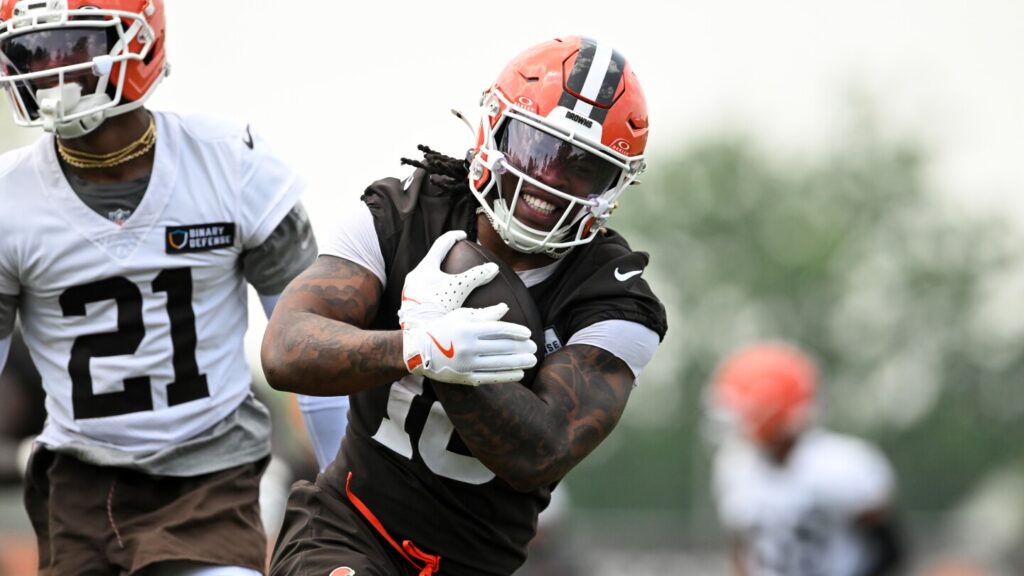The decision by prosecutors not to pursue formal domestic violence charges against Browns running back Quinshon Judkins ends the criminal legal process. For the NFL, it’s the starting point for its own procedures.
Judkins could still be suspended by the league under the Personal Conduct Policy.
In a court of law, a high standard of proof applies to defendants accused of a crime — proof beyond a reasonable doubt. The NFL uses a much lower bar.
And so, if the alleged victim will cooperate, the league could eventually conclude that she’s telling the truth about what happened.
Cooperation becomes the key. The NFL has no subpoena power. It can’t force her to talk, or to testify.
That continues to be the biggest flaw in the NFL’s effort to conduct its own trials. A motivated alleged victim will talk, repeatedly. If the alleged victim has decided, for whatever reason, to not talk, there’s nothing the NFL can do.
Eight years ago, running back Ezekiel Elliott received a six-game suspension, even though he was never arrested. The person who accused him of domestic violence submitted to multiple interviews. The NFL believed her. Elliott was punished.
It’s also possible that, one Judkins signs a rookie contract, the NFL will place him on paid leave until the internal process has been resolved. Again, the decision from prosecutors to not pursue charges does not tie the NFL’s hands.
The biggest question moving forward is this. Will the woman who accused Judkins of domestic violence cooperate with the league? If no, it’s over. If yes, it won’t be.
Read the full article here


